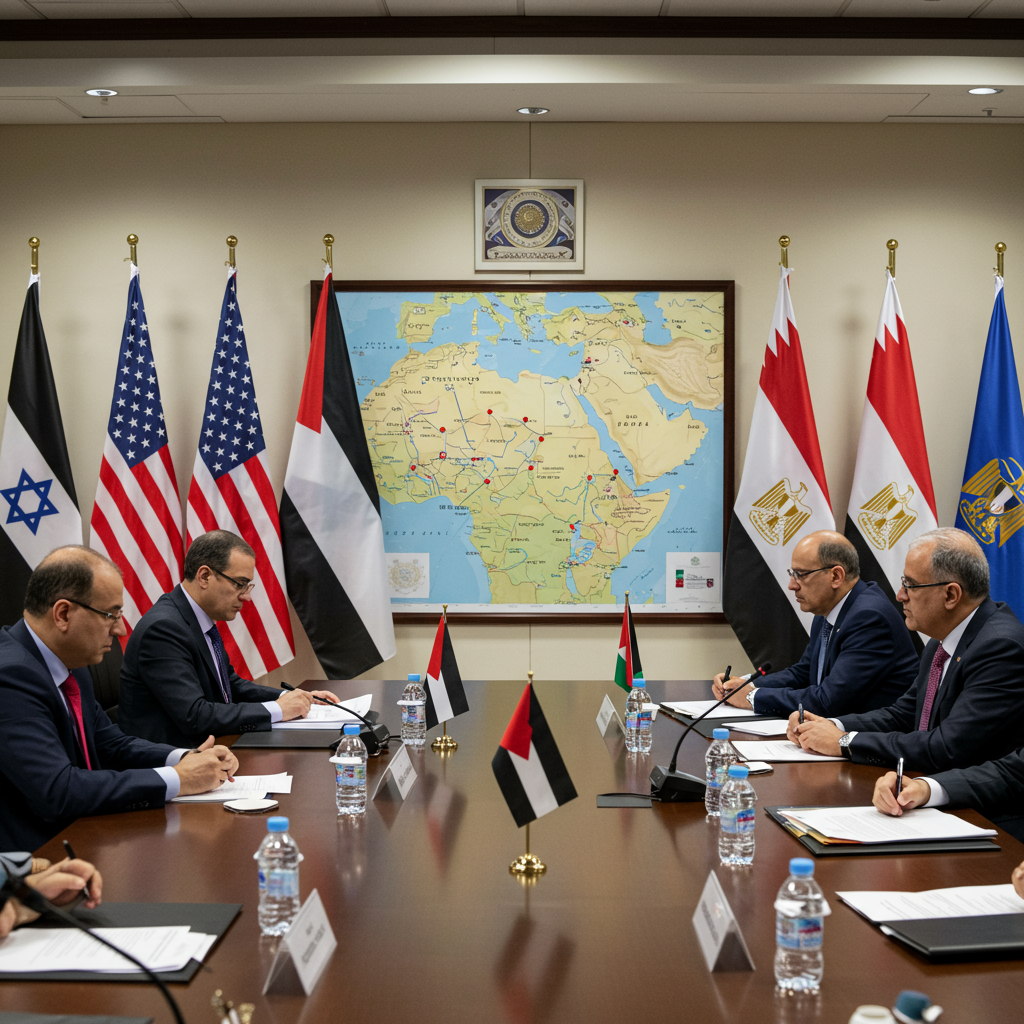US Partially Evacuates Baghdad Embassy Over Heightened Security
The United States has begun a partial evacuation of its embassy in Baghdad, Iraq, ordering non-essential personnel and their dependants to leave the country. The move, confirmed by US government sources on Wednesday, comes amidst what officials describe as heightened regional security risks.
While US officials have not publicly specified the exact nature of the immediate threat prompting the departure, the decision is set against a backdrop of significantly escalating tensions between the United States and Iran. A US State Department official stated that the decision was based on a recent analysis as part of constant assessments of personnel posture at all US embassies, leading to a reduction in the mission’s “footprint” in Iraq.
Tensions Flare Over Iran’s Nuclear Program
The embassy drawdown coincides with stalled talks regarding Iran’s nuclear program. US President Donald Trump expressed increasing pessimism on Wednesday about the possibility of reaching a new agreement. The core of the US position is a demand for Iran to cease enriching uranium, which can be used in the production of nuclear weapons, in exchange for relief from economic sanctions.
Iran, however, maintains that its uranium enrichment activities are solely for peaceful civilian energy generation and denies any intention of building an atomic bomb. Adding to the volatility, Iranian Defence Minister Aziz Nasirzadeh has reportedly threatened retaliation against US bases across the Middle East if nuclear talks fail and the US initiates military strikes against Iran. Iran’s mission to the UN has reinforced this stance, stating that threats won’t alter their position and that US militarism destabilizes the region, asserting that all US bases in host countries are within reach.
Nuclear experts reportedly believe Iran is enriching uranium at a pace that could allow for rapid development of a weapon, and the Board of Governors of the International Atomic Energy Agency (IAEA) is considering censuring Iran, a step that could potentially re-trigger UN sanctions under the framework of the 2015 nuclear deal, despite the US withdrawal.
Broader Measures Across the Middle East
Beyond the Baghdad embassy, the US Defense Secretary Pete Hegseth has authorized the voluntary departure of families of US military personnel from locations across the Middle East, primarily impacting families stationed in Bahrain. The State Department also authorized the voluntary departure of nonessential personnel and their families from Bahrain and Kuwait.
Secretary Hegseth testified before a congressional panel, indicating “plenty of indications” that Iran is progressing towards developing something “a lot like a nuclear weapon.” US Central Command is monitoring the developing tensions, working closely with allies.
However, it’s important to note that not all US operations in the region are affected. Officials confirmed that staffing and operations at the US Embassy in Kuwait and the critical Al Udeid Air Base in Qatar, the largest US military base in the Middle East, remain unchanged and fully operational.
Regional Instability and Global Impact
The heightened tensions have prompted wider security warnings. The UK’s Maritime Trade Operations organisation, part of the Royal Navy, issued an alert to ships in the region, warning that increased military activity in waterways like the Persian Gulf, Gulf of Oman, and the Strait of Hormuz could directly affect mariners. This comes as Iran has a history of attacking and seizing vessels in these critical shipping lanes.
The news of the US evacuation had an immediate impact on global markets, causing the price of oil to jump by over 4% initially, reflecting fears that regional instability could disrupt vital energy supplies.
Iraq’s Complex Position
Iraq itself hosts approximately 2,500 US troops and occupies a difficult position, maintaining relationships with both the United States and Iran. Baghdad hosts Iran-backed armed factions, some of which are integrated into its security forces. Tensions within Iraq have escalated since the start of the conflict in Gaza in October 2023, with Iran-aligned groups frequently attacking US troops stationed in the country. Additionally, Israel, a key US ally, has reportedly struck Iran-linked targets, including Iraqi armed groups, in both Iraq and neighboring Syria.
Interestingly, Iraqi officials have reportedly informed state media that Baghdad has not observed security indications within the country that would necessitate such an evacuation, offering a contrasting local perspective on the immediate threat level inside Iraq.
Former US Ambassador Dan Shapiro has suggested the US preparations could potentially anticipate possible military action, perhaps even by Israel, against Iran. However, he also noted that such preparations take time and don’t necessarily signal imminent action, potentially serving as leverage in ongoing or future negotiations.
The partial evacuation of the US Embassy in Baghdad, coupled with related measures across the Middle East, underscores the US government’s significant concern over the volatile security situation in a region deeply affected by the ongoing standoff with Iran over its nuclear program and regional influence.



